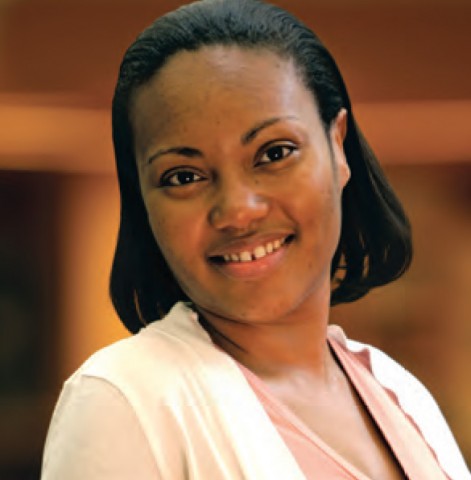
Abigail Williams’s field placement with the Children’s Defense Fund in Washington, D.C., is the motivating factor that led her to doctoral work at U-M’s School of Social Work.
“During my MSW field placement, I saw policy formed at a very high level by anecdotal accounts, not by research,” Williams explained. “Sub-committee meetings asked for research to validate policy decisions, but the research didn’t exist.”
And that’s when Williams realized that she would do the research that’s needed to create effective policy. She has an ongoing relationship with the Children’s Defense Fund, as she pursues her research with the goal of providing empirical evidence to inform the development of youth across multiple systems, which include the child welfare, juvenile justice, and mental health systems.
…I specifically want to understand the determiners of resilience among those youth who are able to overcome trying circumstances against all odds.
“Policy change must be based on research, and research must inform policy.”
Her dedication to research was confirmed when she was accepted into the doctoral program at U-M’s School of Social Work.
“We’ve realized that the data for youth in the child welfare and juvenile justice systems look different in different states…therefore a cookie cutter approach is not sufficient in identifying the needs of all youth.”
In the process of completing her MSW at the University of Illinois, Williams counseled adolescents with mental health issues at the Pavilion Behavioral Health System in Champaign, Illinois, who were often involved with the child welfare system. It was here that she realized many troubled youth are oftentimes caught between multiple systems.
“As a counselor you can make a difference with one child at a time, but there are still many policies in place that cause hurdles in addressing the needs of all children. We need to have a better understanding of adolescent development based on empirical evidence, so that we can provide the best intervention efforts with a broader group of young people.”
Williams’ current research focuses on youth in the juvenile justice system. She wants to understand what’s happening through adolescent development to inform the child welfare and juvenile justice systems and also influence mental health reform.
“I’m still early in my program, and I’m working closely with Professor Joseph P. Ryan, who has been a great mentor, Williams said. “My current research focus is looking at a child’s social support system, and I specifically want to understand the determiners of resilience among those youth who are able to overcome trying circumstances against all odds.”
Although Williams is a relatively new doctoral student, she’s already giving talks at national conferences and writing manuscripts for publication. According to Professor Joseph Ryan, she is developing a set of skills that allow her to apply rigorous scientific methods in hopes of answering important questions for policy makers and practitioners in the field.
“Abbey’s passion is fueled by her direct practice experiences in the field—working in a clinical setting with youth—and from her policy and advocacy experiences with the Children’s Defense Fund,” Ryan said. “Without a doubt, Abbey will make significant contributions to the knowledge base, and in turn help shape the policy discourse that directs social services for adolescents. She’s the ideal doctoral student.”